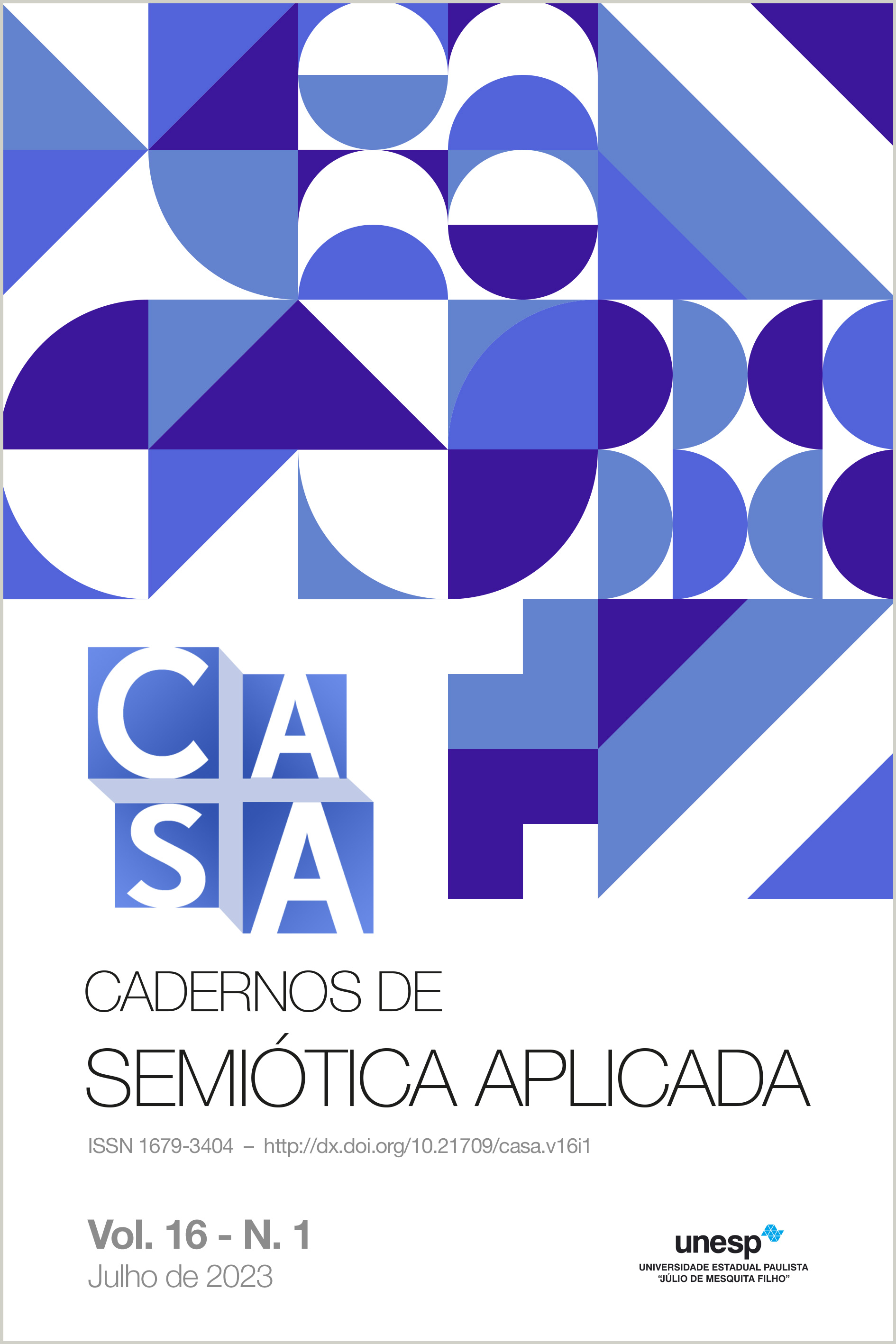O BOOKTUBE NO PROCESSO DE FORMAÇÃO DE LEITORES: ANÁLISE DE DUAS VÍDEO-RESENHAS SOBRE O ROMANCE A VEGETARIANA
BOOKTUBE IN THE PROCESS OF READERS FORMATION: ANALYSIS OF TWO LITERARY VIDEO-REVIEWS ON THE ROMANCE THE VEGETARIAN
DOI:
https://doi.org/10.21709/casa.v16i1.17810Palabras clave:
Semiótica francesa. Booktube. Formação de leitores. Vídeo-resenhas. A Vegetariana.Resumen
O universo de vídeo-resenhas literárias na plataforma YouTube é conhecido como booktube, e os influenciadores digitais que as apresentam como booktubers. Eles têm sido importantes propulsores da leitura e da formação de leitores nos últimos anos. A pesquisa que deu origem a este trabalho teve como objetivo analisar duas vídeo-resenhas literárias sobre o romance coreano A Vegetariana, de Han Kang, disponíveis nos canais “Ler antes de morrer”, de Isabella Lubrano, e “Tiny Little Things”, de Tatiana Feltrin. Empregando o percurso gerativo do sentido, advindo da metodologia da semiótica francesa (GREIMAS; COURTÉS, 1979), analisou-se a forma como a obra é resumida nessas resenhas, procurando depreender quais elementos do romance as influenciadoras escolheram apresentar e qual é o papel desses elementos no sentido global de cada resenha. Além disso, foi feita uma comparação entre os vídeos, a fim de verificar quais são as estratégias de convencimento empregadas por cada booktuber, que procuram conferir ao enunciatário um “querer-ler” ou um “não-querer-ler” a obra em questão.
Descargas
Publicado
Número
Sección
Licencia
Derechos de autor 2023 CASA: Cadernos de Semiótica Aplicada

Esta obra está bajo una licencia internacional Creative Commons Atribución-NoComercial-SinDerivadas 4.0.
Los autores de los trabajos aprobados concuerdan en ceder a CASA los derechos no exclusivos de publicación, permaneciendo libres para colocar a disposición sus textos en otros medios desde que sea mencionada la publicación de la primera versión en la revista. Autorizan, además, a la revista a ceder su contenido para reproducción en indexadores, repositorios y similares. Es vedada la traducción para otro idioma sin la autorización escrita del Editor, oída la Comisión Editorial. La responsabilidad del contenido de los artículos es exclusiva de los autores.

